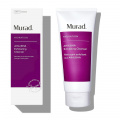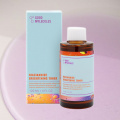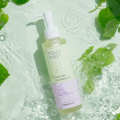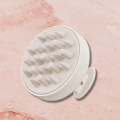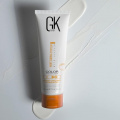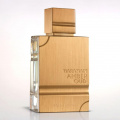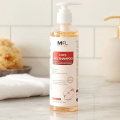6 Reasons Why Your Hair Stopped Growing Naturally
Beautiful hair gets recognized all the time. Thus, it would be natural for you to worry if your hair stopped growing suddenly. Learn the factors that may contribute to this.
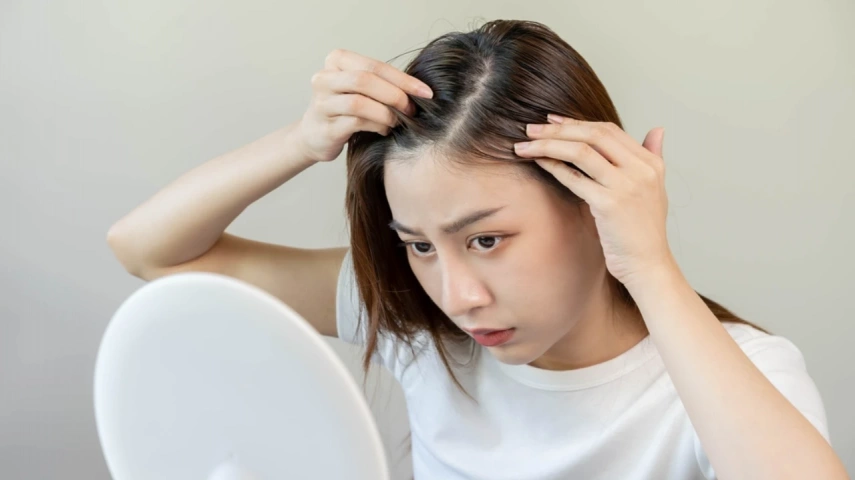
Flaunting long hair feels so satisfying. Those extended tresses of hair look beautiful irrespective of how you style them. Well, healthy hair is a dominant indicator of an individual’s active lifestyle and metabolism. However, you might feel disheartened to notice that your hair stopped growing owing to environmental and psychological factors, hormonal changes, and lack of personal as well as hair care. When that happens, you keep wondering and finding ways to enhance your hair growth.
The good approach would be to not just find the way-outs but understand the underlying causes and symptoms behind this. Let’s dig deeper to improve our understanding of hair growth so that we can take the necessary steps to deal with it before it becomes a permanent loss.
What Is the Hair Cycle?
Hair is majorly composed of a protein called keratin (1). There occurs a quick division of stem cells that ultimately leads to the formation of keratinized cells (1). Hair growth is a cyclical process that doesn’t occur abruptly but in cycles. There are 3 stages of the hair cycle (2):
- Growth phase (anagen): This is an active phase of the hair cycle that leads to the formation of the hair fiber from the hair follicle. With a probability of lasting for years together, this phase involves the growth of the hair (2).
- Transition (catagen): A brief transitional phase that may last for 15-20 days, it involves a one-sixth reduction of the diameter of a hair follicle. Hair strands also undergo complete formation during this stage (2).
- Rest (telogen): In this phase, the hair follicle doesn’t grow. Almost 10-15% of the hair of the body stops growing. The duration for this may vary from weeks to months depending on the area of the body. For eyelashes, it might be a few weeks, and for scalp hair a year (2).
6 Reasons Why Hair Stops Growing
Stress:
Stress is considered to be one of the main factors for inhibiting hair growth (3). It can also trigger and increase hair loss (3). There has also been substantial evidence about stress leading to the premature transition of hair follicles from anagen (active phase) to telogen (rest phase) (4).
Deficiency of Vitamin D:
Vitamin D is a fat-soluble vitamin that regulates the growth and differentiation of keratinocyte cells (5). Lack of Vitamin D has also been proven to cause hair loss owing to its immunoregulatory effect (5).
Genetics:
Slow hair growth and hair loss have proven to be caused by defective genes as well (6). Mutations of gene LIPH, in the case of hair, may also cause slow hair growth or permanent hair loss (6).
Environmental Factors:
In females, there may be a gradual loss of hair and hair thinning because of many reasons including environmental factors (7).
Age:
The scalp of females is prone to get affected by chronicle aging (8). There might be variations in hair density, hair cycle, or other structural qualities of hair fiber (8).
Less Blood Circulation:
When there is restricted flow of blood to the scalp, hair strands become dry and weak, and there is more hair fall and damage to the hair. Regulated blood flow is crucial for providing essential nourishment and moisture to the body.
Home Remedies for Fixing Stunted Hair Growth
Coconut Oil: Coconut oil penetrates deeply into the hair core, and enhances the flexibility of hair fiber (9). It also prevents protein loss and forms a coating over the hair shaft to lock in moisture (10). It also acts as a lubricant, detangles hair strands, and improves the health of the hair (10).
Steps to Follow:
- You can take an appropriate amount of coconut oil on your palms and rub it gently on your scalp with your fingertips.
- You can also take a cotton pad and dip it in warm coconut oil before applying it to your scalp.
- Let it sit for a few hours or overnight before washing it.
Frequency of Usage: You can do this thrice a week.
Olive Oil: Olive oil performs an emollient function and seals the cuticle to lock the moisture inside (10).
Steps to Follow:
- Take an appropriate amount of olive oil and massage it gently on your scalp.
- You can let it rest there for an hour before washing it off with a mild shampoo.
Frequency of Usage:
You can apply olive oil twice a week.
- Argan Oil: Argan oil consists of oleic and linoleic acids that promote hair growth and prevent hair loss (11). It is also known to increase the elasticity of the hair, regulate sebum production and moisturize the hair (10).
Steps to Follow:
- Take the quantity of argan oil as per your hair requirements.
- Massage gently on your scalp for 10-15 minutes.
- Let it sit there for a few hours or overnight.
- Wash it off the next morning.
Frequency of Usage:
You can apply argan oil once or twice a week.
- Castor Oil: Castor oil nourishes hair follicles, protects the scalp and shaft from fungal infections, and conditions the hair (10).
Steps to Follow:
- Take the appropriate amount of castor oil as per your hair length.
- Massage gently on your scalp with your fingertips.
- Let it sit for an hour.
- You can also cover your hair with a shower cap.
- Wash it off properly.
Frequency of Usage:
You can do this once a week.
- Peppermint Oil: Peppermint oil is a practical agent for enhancing hair growth and increasing follicle number and depth (11).
Steps to Follow:
- Take an appropriate amount of peppermint oil and massage your scalp with it.
- You can also mix a few drops of rosemary oil into it.
- Let it rest for 30-45 minutes.
- Wash it off with a sulfate-free shampoo.
Frequency of Usage:
You can do this once or twice a week.
- Pumpkin Seed Oil: Pumpkin seed has phytosterols that are effective for promoting hair growth and preventing hair loss (12).
Steps to Follow:
- Warm an appropriate amount of pumpkin seed oil.
- Dab cotton into it and apply that on your scalp gently.
- Keep it like that for 2-3 hours or overnight.
- Wash it off the next morning.
Frequency of Usage:
You can do this up to 3 times a week.
- Sesame oil: Sesame oil moisturizes hair follicles, enhances scalp circulation, and reduces graying of the hair (10).
Steps to Follow:
- Take an appropriate amount of sesame oil and massage it gently on your scalp.
- Preferably with your fingertips.
- Let it sit for 40-50 minutes before washing it off.
Frequency of Usage:
You can apply it twice a week.
What Are Some Hair Growth Treatments?
- Therapeutics: Therapeutics promotes anagen, and delays catagen to restore hair density (13). Finasteride and minoxidil are the most widely used medicines for treating particular regulators involved in hair growth (13).
- Tropical Prostaglandins: Prostaglandins have an effective role in stimulating hair growth (13). Bimatoprost, a prostaglandin, has been proven to enhance scalp hair growth (13).
- Microneedling: Microneedling, done using a roller device, modulates hair growth (13).
- Low-Level Laser: Low-level laser stimulates hair regrowth (13). The mechanisms involved may be enhanced microcirculation and cellular activity (13).
- Platelet-Rich Plasma: This treatment involves intradermal injection of the scalp with platelets (13). The plasma is derived from the patient’s blood via centrifugation and prolongs anagen and prevents catagen by the release of growth factors (13). This method has been proven to stimulate hair growth, avert hair fall, and reduce hair breakage (14)
Tips to Increase the Hair Length
- Oiling Hair: Massaging your hair with a rich hair oil may nourish your hair. It also enhances blood circulation of the scalp, stimulates hair growth, and reverses the damage done to it by different factors (15).
- ECGC intake: ECGC which is an active ingredient of green tea is proven to cause hair elongation (16).
- Eat A Balanced Diet: A balanced diet may boost your metabolism which in turn helps your hair become more healthy.
- Avoid Overwashing: Overwashing your hair may result in thinning of your hair. It may also strip the natural oils and moisture of the hair which may affect your hair growth.
- Don't Go for Hot Water Washing: Hot water may lead to dry, frizzy, and damaged hair. It may also make your hair weak and prone to hair fall.
- Use Sulfate-free Shampoo: Sulfate may irritate your scalp making it dry and unhealthy.
Conclusion
Hair growth is a continuous process. However, certain factors may either hasten or slow down the growth of hair. When it comes to your notice that your hair stopped growing, rather than panicking about it, find out what is causing it and what can be done to reverse or improve it. Some home remedies may help with nourishing your hair. And, there are also advanced hair growth treatments for you to check and explore if the need arises.
Sources:
1. Human Hair Keratin?Associated Proteins (KAPs)
https://www.sciencedirect.com/science/article/abs/pii/S007476960651006X
2. Physiology, Hair
https://www.ncbi.nlm.nih.gov/books/NBK499948/
3. Burden of Hair Loss: Stress and the Underestimated Psychosocial Impact of Telogen Effluvium and Androgenetic Alopecia
https://www.sciencedirect.com/science/article/pii/S0022202X15309635
4. Hair Loss in Systemic Disease
https://www.sciencedirect.com/science/article/abs/pii/S073386351830737X
5. Human Hair Growth Deficiency Is Linked to a Genetic Defect in the Phospholipase Gene LIPH
https://www.science.org/doi/abs/10.1126/science.1133276
6. In vitro analysis of LIPH mutations causing hypotrichosis simplex: evidence confirming the role of lipase H and lysophosphatidic acid in hair growth
https://pubmed.ncbi.nlm.nih.gov/19536142/
7. Female Pattern Hair Loss—An Update
https://www.ncbi.nlm.nih.gov/pmc/articles/PMC7413422/
8. Hair through the female life cycle
https://academic.oup.com/bjd/article-abstract/165/s3/2/6642736
9. Single hair fiber assessment techniques to discriminate between mineral oil and coconut oil effect on hair physical properties
https://onlinelibrary.wiley.com/doi/abs/10.1111/jocd.13724
10. Hair Oils: Indigenous Knowledge Revisited
https://www.ncbi.nlm.nih.gov/pmc/articles/PMC9231528/
11. Peppermint Oil Promotes Hair Growth without Toxic Signs
https://link.springer.com/article/10.5487/TR.2014.30.4.297
12. Pumpkin Seed Oil For Hair Loss: Does It Work?
https://scandinavianbiolabs.com/blogs/journal/pumpkin-seed-oil-hair-loss
13. Advances in hair growth
https://www.ncbi.nlm.nih.gov/pmc/articles/PMC8808739/
14. Platelet-rich plasma, the ultimate secret for youthful skin elixir and hair growth triggering
https://onlinelibrary.wiley.com/doi/abs/10.1111/jocd.12404
5. Hair Oils
https://link.springer.com/chapter/10.1007/978-3-319-29419-3_2
16. Human hair growth enhancement in vitro by green tea epigallocatechin-3-gallate (EGCG)
https://www.sciencedirect.com/science/article/abs/pii/S0944711306001383





 JOIN OUR WHATSAPP CHANNEL
JOIN OUR WHATSAPP CHANNEL






































